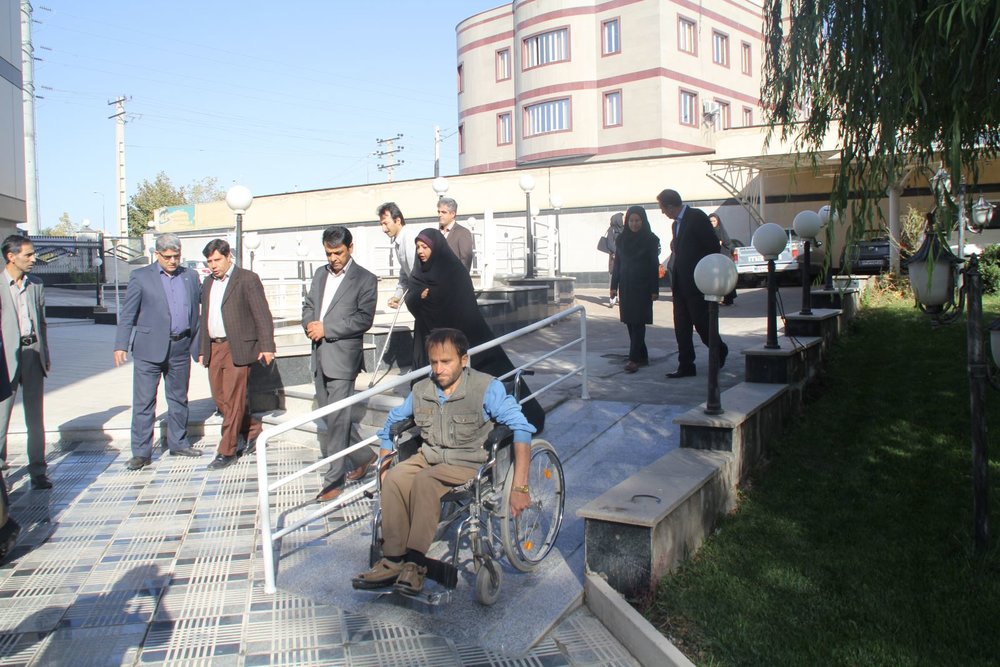Persons with disability awaiting better living conditions

TEHRAN – The bill on rights of persons with disabilities, which is being discussed by the Majlis [Iranian Parliament], has raised hopes among the disabled for better living conditions.
People with disabilities have a wide range of problems such as finding jobs or living in cities which have not been developed to be accessible for disabled people.
“We are far from [providing reasonable] living conditions for persons with disabilities and this is not exclusively a concern for the government; the society should also respect the rights of the disabled,” Cooperatives, Labor and Social Welfare Minister Ali Rabiei told IRIB on Saturday on the sidelines of a gathering held on the occasion of the International Day of Persons with Disabilities, December 3.
Unfortunately, many individuals still believe that making buildings disable-friendly just incurs additional costs, he added.
“Of course government buildings and offices are now accessible to people with disabilities, however these standards must be met by the private sector and the public sector as well,” he noted.
“In this regard we have proposed a new bill to the Majlis which mandates budget allocation of 30 trillion rials (nearly $750 million). Most importantly the bill will authorize a minimum wage for those disabled individuals who are not able to work,” he added.
As per the bill, parents of disabled children will be exempted from tax, the minister highlighted.
He also noted that the government is striving to make major steps for educating the disabled in universities and schools and providing educational supplies.
“Providing houses for families who have two members with disability is in progress and 4,000 houses are under construction and will be ready by the end of the current [Iranian calendar] year (March 2018). We hope that we can start housing families with disabled member in the next year,” the minister explained.
Reformed recruitment policies
Anoushirvan Mohseni-Bandpey, head of the Welfare Organization, said for his part that the bill also obliges state-run organizations to allocate 3 percent of their vacancies to the disabled people otherwise the welfare organization has the right to legally follow up on the issue.
“Of the 46,000 jobs created last year 26,000 were dedicated to people with disability and we hope to improve the latter to 60,000 in the near future,” Bandpey stated.
He went on to say that “if an employer hires an individual with disability, the organization will pay the insurance premium for the first five years and also, based on the extent of the disability, the organization pays some share of the wage. We are trying to take the disabled people out of their homes and bring them back to the society.”
“We have performed poorly regarding developing disability-friendly cities to the point that less than 25% of the required standards are met,” he explained.
“The new bill will obligate builders to make their new constructions disabled-friendly,” Bandpey added.
30,000 congenital anomalies prevented
“By making genetic screening tests mandatory, we succeeded in preventing congenital anomalies causing of infant and childhood deaths, chronic illness and disability in 30,000 children,” he said.
“Today we proudly declare that all the newborns undergo hearing screening tests and 80 percent of children aged 3-5 have taken vision screening tests for lazy eye disorder.”
MAH/MQ/MG
